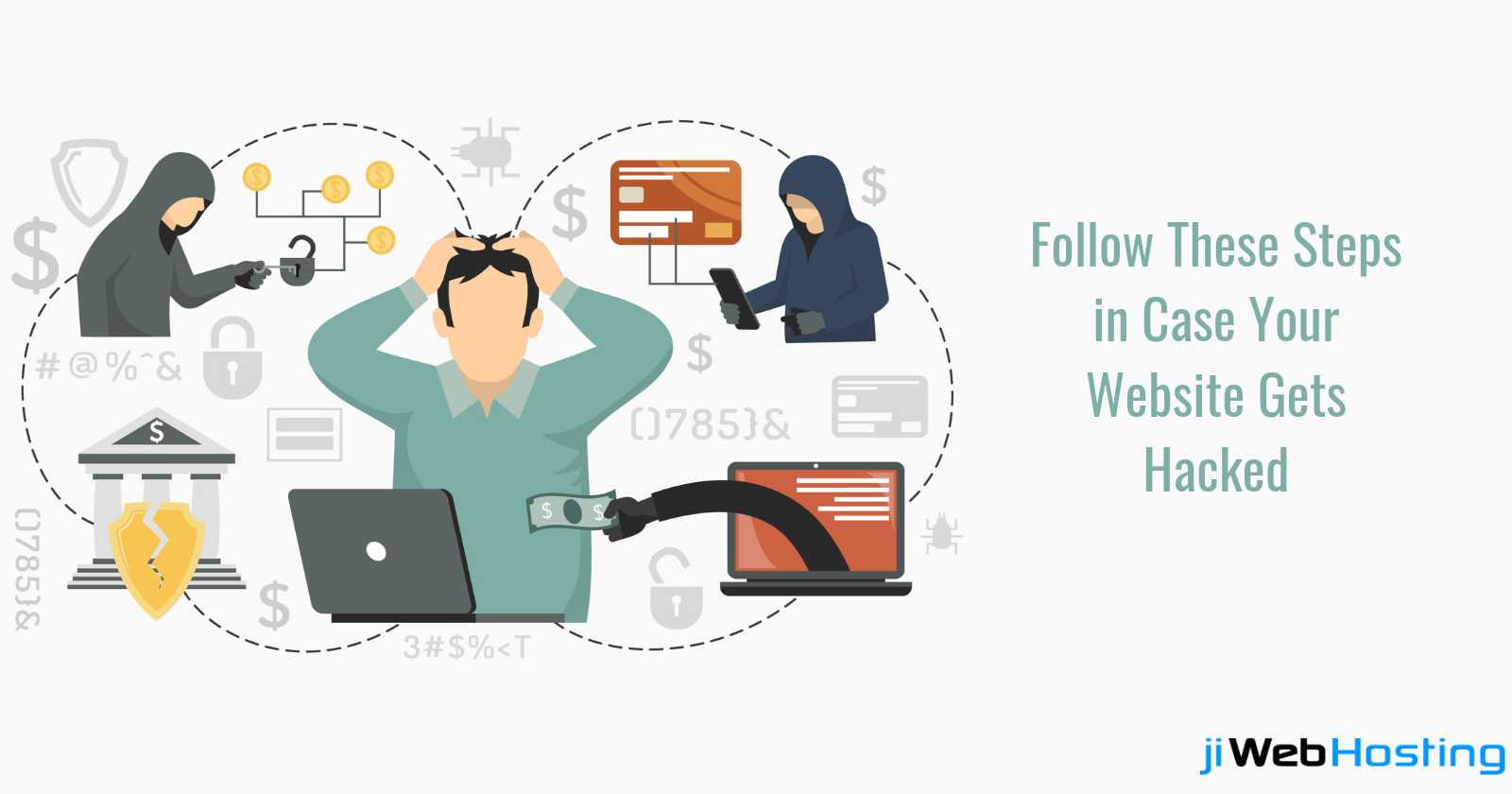Did you ever encounter any of the website hacks or data getting corrupt? If yes, you would be well aware of its adverse consequences. Thinking of a website getting hacked over which you have spent years is simply like a nightmare. Agree? At least once we ourselves leave a door open for the hackers to compromise our website security and fetch the data out of it.
So, in this post, we are going to discuss the steps which you can adopt in case your website gets hacked. Of course, who'll wish that their website gets hacked, therefore you must be prepared in advance and stay on the safer side?
Steps to follow if the website is hacked
Suppose you wake up on a Sunday morning, you have plans with your family and you are ready for a vacation. But you see some pages missing over your website all of a sudden. Now what? Who did it? Is it a data crash? Did somebody hack your website? Or is it a hardware or Internet issue? A lot of questions will strike your mind and you'll feel helpless about how to get out of it. From here on, below are some important steps that you need to follow in order to prevent further damage to your website and retain your website stability.
You must secure your installation
Before you carry out any major changes, you need to firstly block the hacker to regain access to your data or viewing any further sensitive data of your website. For this, you must:
- Set file permissions on your sensitive data, in fact, secure all the files and documents with tight file permissions so that the data is simply inaccessible on the hacker's end. You can set the permission by either using 'chmod' command or via other available security options. This will make the data inaccessible to the public and even unable to load on the browser.
- You must check the IP logs on your server and detect the unknown IPs and block those malicious IPs on priority. The IPs which don't resemble your network, don't take a chance and simply block it. This will help in preventing the hackers to regain access to your website.
Remove the unused apps and their databases too
If you are still keeping any kind of duplicate installations, testing environments, unused domains, or development phases of the website, everything has to be deleted. Keeping them on your server will give an open invitation to the hackers, so you need to be aware.
Remove backdoors immediately
Website getting hacked happens mainly due to one reason, that is, backdoors. It could be due to an outdated app version, vulnerable plugins, weak passwords. All these factors offer easy access to your website to hackers. So, you must review recently modified files, remove all the unused plugins, update the apps and plugins you are currently using, and further remove the suspicious files and directories.
Update all the credentials
One of the prior steps you need to work upon is immediately updating all the credentials of cPanel, or FTP accounts, and set new strong passwords. That's just not all. You need to reset the password for all the database users too. This will be quiet beneficial in safeguarding your website from hackers.
Keep your website on the safer side!
If you think that managing your website can be managed by one experienced person, you might be wrong. To keep your website protected from the hackers, you must rely on a good provider like jiWebHosting which assures website security and offers reasonable hosting plans which are perfect for your website needs. Have any queries or want to know more about us? Get in touch and share your queries with our experts.

















Share this post on: